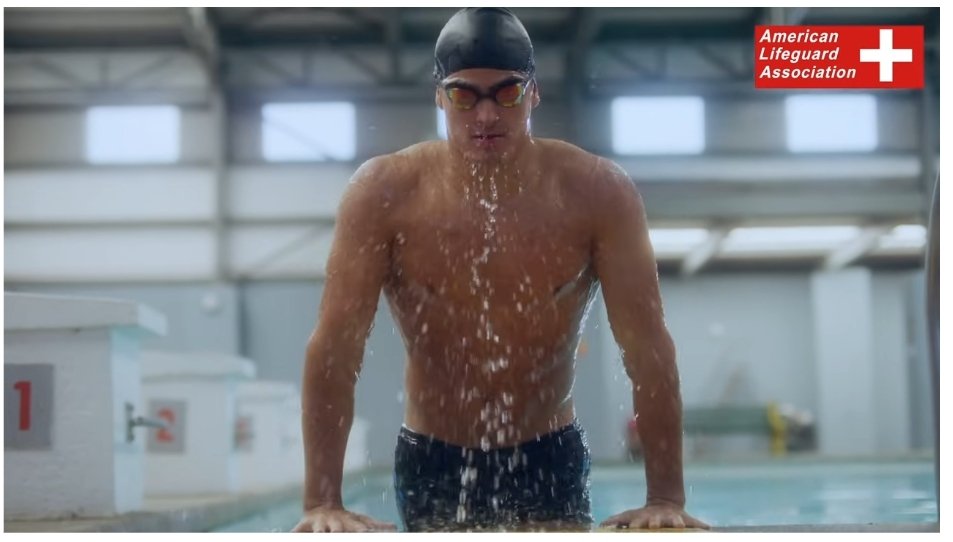Summer is the time when people run towards open waters to tackle the heat and have fun in waters. Water are fun placed to be but they also have potential hazards that can cause serious medical and life-threatening issues. In water related hazards the lifeguards are the first line of defence, guaranteeing that swimmers in pools, oceans, and coastal regions may enjoy themselves.
Among the many qualities a lifeguard must have, being a good swimmer is surely among the most essential. This essay examines why good swimmers make the best lifeguards and how their skills enhance every aspect of lifeguard training and emergency response.
Peak physical fitness is required for lifeguarding.
Lifeguarding is not about sitting on a high chair and watching the waters and people swimming g in it. It is a job with responsibility that demands a strong physical condition to be able to handle all types of water hazard. It calls for ongoing vigilance, fast evaluations, and frequently fast reactions. Lifeguards need remarkable physical stamina whether they are swimming in crowded pools, treating frantic victims, or battling currents. Strong swimmers have the advantage since they can powerfully and effectively navigate through the water in addition to being at ease there.
Strong swimmers may concentrate on safety rather than survival if they can swim great distances, tread water for long durations, and rescue simply. Effective lifeguard training programs start with this ability, whereby physical readiness is the initial step toward competence.
Lifeguard Training: More than merely Certification
Comprehensive training for lifeguards gets people ready to manage a great variety of water crises. Mastering rescue methods, CPR, first help, and surveillance techniques are the core of the focus keyword, lifeguard training. A great deal of this instruction, though, centres on honing one’s capacity to function under stress in water.
Strong swimmers have the physical demands of real-world situations and simulations better suited to them. They are outstanding at deep water recoveries, backboard extrication, rescue drills, and even multi-victim rescues. Two essential qualities in emergency response—their comfort in the water—confidence and fast thinking—
Frequently, lifeguard training stresses strength and technique. Those already with great swimming ability can adjust more swiftly to the demands of training, therefore enabling them to respond to crises with accuracy and efficiency.
Risk Assessment and Strong Swimmers
One usually ignored component of being a competent lifeguard is risk analysis. Understanding a possible danger before it turns into a catastrophe is essential. Strong swimmers’ expertise and awareness of water dynamics make them better at detecting subtle indicators of risk, like changes in current, weariness in swimmers, or weather conditions shifts.
This intuitive awareness of underwater ecosystems gives them an advantage in proactive security. They can predict rather than respond, therefore avoiding mishaps before they occur. Such anticipatory abilities are honed during lifeguard training, but a basis in excellent swimming builds on this inherent aptitude.
Composure is Necessary in High-Stakes Scenarios
Lifeguards must make life-or-death choices. Whether it’s saving a troubled child from the deep end or attending to spinal damage in open water, composure is essential. Strong swimmers are less distracted by the physical challenge of staying afloat or negotiating waves; hence, they are more likely to remain cool in high-stress circumstances.
This mental clarity helps them to approach their tasks rationally. To recreate crises, lifeguard training uses stress tests and scenario-based drills. The association between physical ability and mental preparation is underlined as those who already have great swimming skills frequently do better on these tests.
Solving the Lifeguard Shortage
Communities all around the United States have seen a lack of competent lifeguards lately. Limited hours at public pools, unguarded beaches, and even brief closures of aquatic facilities have resulted from this scarcity. In its expert opinion on the effects of these shortages, the American Lifeguard Association is quoted often in both print and electronic media outlets.
The Association advises that one approach to fighting this problem is by motivating good swimmers to enrol in lifeguard instruction. Recruiting people who already have excellent swimming abilities speeds up the certification process and guarantees that applicants are prepared for real-world challenges.
Furthermore underlining the need for more accessible lifeguard lessons and better incentives for those contemplating this essential job is the present lifeguard scarcity. Good swimmers can join the answer to assist in filling the urgent need for aquatic safety staff.
Water Safety is a Communal Obligation
Water safety is an important thing for all who are visiting waters for fun. Trained water safety experts who hold the frontline position are lifeguards. Good swimmers who assume this part turn out to be priceless resources for their communities. Their presence increases not only the safety but also the confidence of people who appreciate aquatic environments.
Strong swimmers give lifeguards authority and confidence. Swimmers of all ages feel safer knowing the individual running the beach or pool possesses the knowledge to intervene successfully should it become necessary. This confidence promotes a culture of respect, awareness, and safety for water environments.
Final Word: A Call for Good Swimmers
Ultimately, it is clear that good lifeguards are associated with strong swimmers. Their perfect candidates for lifeguard instruction are those with bodily strength, water confidence, and the capacity to remain cool under pressure during crises. Now is the moment for able swimmers to rise and help as lifeguard shortages continue to hamper pool and beach activities all over.
Widely referenced in both print and digital media, the American Lifeguard Association calls for more American lifeguard certification program accessibility and acknowledges the great need for qualified people. Their direction in the industry confirms the need for good swimmers to sustain safe aquatic surroundings.
Should you be a powerful swimmer wanting to effect change, think about becoming a lifeguard. Your abilities might save a life—and that is the ultimate reward.
